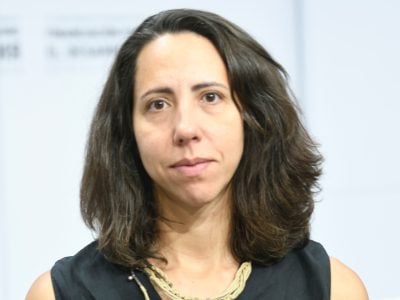The London Stock Exchange (LSE) is one of the world’s most important financial centres. It also plays a crucial role in helping African companies raise finance. Ibukun Adebayo, head, primary markets – South Asia, Africa and the Middle East, talks to Alexa Dalby on the LSE’s connections with Africa and the benefits for African companies seeking to list on this world famous bourse.
Ibukun Adebayo is a second-generation Nigerian, born and educated in the UK. During his six years at the London Stock Exchange, at the heart of the world’s financial community, he has spent the majority of his time in business development, working with companies, international advisers and regulators in Africa and other regions who are interested in listing on the London Stock Exchange markets.
He has overseen almost 60 London IPOs, as well as being the Exchange’s regional contact for companies listed on London’s Main Market, Professional Securities Market, Specialist Fund Market and AIM.
He has a BSc in mathematics and started his career as a foreign exchange trader. He went on to run a business specialising in hedging forex risk for African and South Asian companies, living in both Bangladesh and India.
But it had always been an ambition to join the LSE. “I jumped at the opportunity. My remit has increased from India to South Asia, the Middle East and Africa and very recently the Americas as well.
“Our focus in the primary markets team is to help companies raise capital, and introduce them to the very wide and established pools of capital that reside here in London.”
The LSE has a history of encouraging
African companies to list, he says, and there are currently 23 African companies in the Main Market and 63 on the Alternative Investment Market (AIM), the junior market (different entry requirements apply to each).
“Companies mainly look to increase their profile for being a listed business in the UK. For liquidity – the churning around of money – it is easier for them to raise money later and to gain access to different pools of capital,” he says.
The key thing is the importance of the LSE in the financing chain for African companies, he adds. “Our strength lies in our positioning, our understanding of African businesses as well as access to investors who understand African business.” Adebayo says. “The saying is that if you don’t have an Africa strategy now, you need to tell your CEO to go and get one!”
Africa has registered steady growth of at least 5% year on year, “which is pretty extraordinary, and the opportunities are significant”, he points out. “People like myself spend a lot of time speaking directly to African businesses who are looking to grow and expand both in the region and internationally, and we can provide capital for them in that respect.
“We also speak directly to local regulators and local stock exchanges. It’s very helpful when you’re trying to develop the private sector in Africa that you do it in conjunction with the other authorities. So we spend quality time with, for example, the Nigerian Securities and Exchange Commission and the Kenyan Capital Markets Authority.”
Different strokes, different folks
He points out that one size does not fit all in Africa. There could be regulatory issues. For example, in South Africa there are capital account controls – which means it’s difficult for money to cross borders easily. Where companies need to be able to move money, the LSE would work very closely with the local authorities to ensure that those problems are surmountable.
One of the major difficulties of listing on foreign bourses is that disclosure standards vary from country to country. “Generally speaking, the UK follows international standards of disclosure while the African market tends to follow its own local standards, which befit local businesses,” he explains.
He gives the example of Zambeef – the first Zambian company to list on the LSE. “There you have very different local disclosure requirements in comparison to UK standards; therefore Zambeef had to change its reporting standards to allow it to list here in London.”
As businesses become more international, he says, it is critical that they change their standards to meet international standards. For example, a listed business has to provide financial information on a periodic basis – its headline numbers on revenue, sales and profit.
“In London, you have to do that four times a year depending on the market segment. Perhaps in Zambia, you only have to do that twice a year,” he says.
Another difference he cites is accounting standards. Again, companies like Zambeef have had to change their standards to meet international criteria rather than relying on local accounting standards.
Why African companies list
“We have about 88 sub-Saharan companies that have listed and raised capital on our markets from a number of sectors, including oil and gas, natural resources and mining,” he says.
The collective value of sub-Saharan African companies in London is about $62bn, which makes the London Stock Exchange the second-largest exchange containing African companies after the Johannesburg Stock Exchange, which is capitalised at about $750bn. Since 2005, African companies have raised over $12bn on the London Stock Exchange “So London has a very important role to play in financing African equity stories.
Equally important is the possibility of dual listing. South African companies, for example, can list on both the JSE and London.
Why dual list? “A company can find comparative advantage with access to two liquidity pools,” says Adebayo. “You can have an African investor base that understands the African nature of the business, and you can have a secondary investor base, perhaps in London, that understands your international aspirations,” he explains. “So that would involve having a primary listing in Johannesburg, perhaps, and a secondary listing in London. We spend a lot of time with the authorities to ensure the LSE’s primary-markets offering is complementary to local opportunities.
“And that’s key. If you’re speaking to a London-based investor and you have a business that’s immediately looking to raise money in an international market, the first question that will be asked is: ‘Have you raised money in your local market, have you used up all of your spectrum in terms of fund raising in the local market?’.
“If you have, or if, for example, the equity story of the company is better understood in somewhere like London, which has strengths in being able to appropriately value mining, oil and gas projects, basic materials, telecoms and retail, then a company might be inclined to come and raise capital in London because it may receive a fairer valuation.”
That’s one example where perhaps a company wouldn’t list locally first, he says. “The second example is where a company, from the outset, is totally international. For example, there’s an international Kenyan business process outsourcing (BPO) company with clients in the US, India, China and the UK. It’s important that it looks and feels international, so seeking an international listing rather than doing something locally might be appropriate.
“But otherwise, in all other instances, we ensure that we are only providing complementary financing alternatives to businesses rather than being predatory in any way.”
Trends and opportunities
Adebayo explains that typically, a company has two choices of financing. It can either take equity by private means, or through a public market like the stock exchange, or through debt. Debt doesn’t necessarily need to be listed on the stock exchange but it’s becoming a more popular vehicle for African companies.
He adds that 2010 was a very important year for stock exchanges in Africa. Companies raised approximately $2.1bn, which was predominantly taken up by a very large listing on the main market by African Barrick Gold, whose assets are mainly in Tanzania, where, very interestingly, it is also seeking a listing in Dar es Salaam on the local exchange.
“The $2.1bn is a significant amount because that represents about 90% of all equity capital raised by Africa-focused companies in 2010. So there’s a very natural gravitation of African companies to London. Evidently there are historical ties, but equally there is the fact that investors in the UK tend to be more au fait with Africa, and how it works, and all the subtle nuances that make Africa the continent that it is.
“We have seen a trend of a large number of predominantly natural resource companies coming on to AIM, our junior market. AIM has provided a very good platform for African companies, as the eligibility requirements needed to get into the market are a little more simplified and more appropriate for companies from the region and also for companies in that dynamic phase of growth.
“Last year, in addition to companies from the resource sector, we also saw agricultural companies. It’s good to see that African companies are getting the right type of funding and financing to be able to grow those businesses domestically. So we feel that AIM is a very important part of that financing chain. ”
Which countries are most active in listing? “There are the resource-rich (in particular, oil) countries like Nigeria, Angola, Gabon and Ghana. Then there’s a group of countries that we call the ‘Five Per Cent Club’ including Mozambique and Namibia, that have grown by 5% or greater between 1998 and 2008. Finally, there are those countries that have been growing at less than 5% per year over the last 10 years. This group, surprisingly includes South Africa, which has only been growing at 2.9% on average per year. “
“We are also very interested in Kenya for the simple reason that we believe it will become the hub of the East African community, so we’re talking to companies that will respond most actively to that growth. There’s a big ICT push in Kenya right now and a technology city, Konza, is being built.
“Kenya has always been very strong in agriculture,” he says. “We’ve had a Kenyan company in agriculture listed on the exchange since the 1950s. But with more capital-intensive requirements, these companies need to raise money. The Kenyan financial services community is very strong but will need more capital moving forward. So these are specific areas in Kenya that we’re looking at.”
Adebayo points out that many companies don’t believe that they can meet international standards for listing. “In reality,” he says, “a lot of them can. And where they can’t, the London Stock Exchange has markets that might be appropriate for them. For example, we’re not asking companies to come in at a certain size, they can have any type of size and this will continue to present opportunities for these businesses. Our role is to ensure that companies understand what our offering is, so we can engage more with them.”
Diversification and relevance
And the future? “We are looking to diversify away from natural resources and Nigeria, Kenya and South Africa. We’re very keen to promote more businesses with indigenous management because we feel they understand the nuances of working in Africa. And we also think that indigenous businesses at some point may get a comparative advantage to foreign firms operating in Africa through regulatory changes that may be afoot. SMEs are important. We’re continuing to tweak our offering to make it more relevant for Africa and that’s something we’re doing with a lot of detail.”
How do you make it more relevant? “We are bringing investors and companies together in London and we’re also considering taking our investor base here to look at opportunities in Africa. The burgeoning African middle class is a different class from that in China and India. A lot of the money that’s gone into Africa has been through private equity investment. We saw exchange figures of $2.1bn last year: I’d say it was 10 times that from private equity investment. It will hopefully support a new wave of money going through local capital markets, but also potentially in international capital markets like London too.”
Want to continue reading? Subscribe today.
You've read all your free articles for this month! Subscribe now to enjoy full access to our content.
Digital Monthly
£8.00 / month
Receive full unlimited access to our articles, opinions, podcasts and more.
Digital Yearly
£70.00 / year
Our best value offer - save £26 and gain access to all of our digital content for an entire year!

 Sign in with Google
Sign in with Google 


